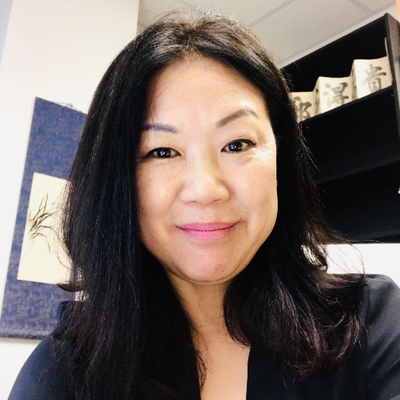Welcome to our series of conversations with participating speakers at this year’s Tung Lin Kok Yuen International Conference – Buddhist Canons: In Search of a Theoretical Foundation for a Wisdom-oriented Education (27–28 November 2021). In each blog post, I speak with keynote speakers and paper presenters about their subject at this conference.
Register for this insightful symposium here.
Buddhism and Engaged Citizenship
Jin Y. Park is Professor and Department Chair of Philosophy and Religion at American University. Park specializes in East Asian Buddhism (especially Zen and Huayan Buddhism), Buddhist ethics, Buddhist philosophy of religion, Buddhist-postmodern comparative philosophy, and modern East Asian philosophy. Park employs Buddhist tradition to engage with contemporary issues with a special focus on gender, justice, and ethics. Park’s research on modern East Asian philosophy examines the dawn of philosophy in East Asia and the East-West encounter in that context. Park published numerous articles on Buddhist philosophy, Buddhist-postmodern ethics, gender and justice, and modern East Asian philosophy.
Her books include Women and Buddhist Philosophy (2017); Reflections of a Zen Buddhist Nun (trans. 2014); Makers of Modern Korean Buddhism (ed. 2010); Merleau-Ponty and Buddhism (co-ed, 2009); Buddhism and Postmodernity (ed.2008), Buddhisms and Deconstructions (ed. 2006). Park currently serves as the President of the North American Korean Philosophy Association (2016-present). Park also served as the President of the Society for Asian and Comparative Philosophy (2018-2019), was on the Board of Directors (2013-2015) of the American Academy of Religion. She was also the Founding Director of the International Society for Buddhist Philosophy (2001-2018).
BDG: A key premise of your paper is that democracy, once an attractive marker of a modern and prosperous society, especially in postcolonial contexts, is tottering. The US is the best example of this. What kind of wisdom do you see as missing from the Western model of politics and society, especially in 2021?
Jin Y. Park (JYP): Democracy as an idea has a long history, going back to Ancient Greece. Modern democracy germinated during the Enlightenment period, and was revolutionary in the sense that it challenged two older orders: monarchy and aristocracy. It also developed, independent of religious or transcendental justification, the notion of “natural rights,” inherent rights that belonged to every human being. It is easy to see how this meant that democracy advocated equality, but it is also easy to see how democracy was beset with inconsistencies. Europe’s emergent bourgeoisie challenged kings and nobles, but excluded a good chunk of the population, from women to minority groups.
There is another inconsistency in the democratic tradition, and this is human rights discourse. For a long time, it has been framed around an individualistic perspective (what “I deserve”) as opposed to responsibility and community (what I “owe to” others). Entwined with this is our globalized, Western-style education model that teaches us how to be a good citizen, but not necessarily how to be a good human being.
Whereas one might think that ethics, which is indeed present in Western education is enough to fulfil the latter need, I have in mind cultivation, which is not a word used in mainstream Western systems. Cultivation asks what it means to be a human being, and this means that practice (praxis) becomes inseparable from ideas (theory). This is related to the idea of developing virtue, which is present in both Confucian and Buddhist schools of thought. Both cultivation and developing virtue are absent from Western education and ethics, which does separate practice from ideas.

BDG: Secular VS religious, traditionalist VS modern, local VS “Western”/global. You make the case that the Buddhist community fell into the trap of binary logic in its struggle to survive the travails of the 20th century. How are Buddhist thinkers, teachers and writers today breaking out of this trap?
JYP: I am not sure that it has actually gotten better. The first generation of East Asian Buddhist thinkers that engaged with Western philosophy did make clear that Buddhist philosophy had something more to offer than Western counterparts, which was practice or cultivation. In other words, at the turn of the 19th and 20th centuries, Asian thinkers, students, and reformers already realized that the binaries you mention were problematic. They tried to transcend it. Whether today’s neuroscience-loving meditators – and others that use rationalism or empiricism as yardsticks to measure Buddhism’s legitimacy in popular discourse – have managed to transcend this dichotomy, is another matter.
BDG: How is wisdom-based education distinct from the umbrella term of “Engaged Buddhism,” which spans many cultures and schools but has tried to engage Buddhism with modern problems?
JYP: The short answer is that Engaged Buddhism might be best seen as part of a broader ecosystem of wisdom-oriented education. However, I would suggest that we start with a reflection on what “wisdom” even means, along with a serious rethinking of the whole superstructure of Buddhist technical vocabulary. Educators currently do not have the material to sculpt fundamental Buddhist values around the needs of society in the 21st century.
Let’s start with something quite basic: “Do no harm,” the First Precept. Buddhist teachers at all levels, and Buddhist Studies, have not done serious research into the practical application of non-harm and non-violence. Does it mean only non-killing, and what happens when one’s life or those of your community are under threat? His Holiness the Dalai Lama and Thich Nhat Hanh are absolutists when it comes to non-violence. When the Dalai Lama was presented with confronting the PLA, he went into exile in India. When Thich Nhat Hanh was threatened by both the Vietcong and the South in the Vietnam War, he left the country for France. They are pacifists at all costs, which is very noble. However, I wonder how effective this method is for oppressed groups confronting dilemmas about resistance or compliance in their own societies, from people suffering racial injustice in the US to refugees facing the destruction of their communities. Not everyone can be non-violent 100 per cent of the time; this simply does not exist in a practical sense in most of the world’s population.
Until we have some teaching materials as educators that can help students grapple with an extremely complex world filled with dilemmas and moral grey, we risk mouthing platitudes and cliches while not offering much of relevance to today’s great ethical questions. Re-engaging with these fundamental ideas that Buddhists take for granted gets back to your question about Engaged Buddhism. If Engaged Buddhism was a rethinking of the Buddhist role in the world in the 1960s, in the 21st Century we have an opportunity to move beyond Engaged Buddhism and develop something that is timelier and more updated for our context in 2021.
BDG: Can we talk a bit more about redefining basic terms in the context of wisdom and how this applies to wisdom-oriented education?
JYP: It’s first of all important to recognize the limitations of all philosophical schools. Buddhism never articulated a full political philosophy, so we are not suggesting that liberal democracy be discarded completely. That said, Buddhism brings something completely unique to the debate around education, civic society, and politics thanks to its vision of wisdom as the realization of emptiness. To realize emptiness is to open up our egocentric world and transform how we define ourselves and our relationships. The wisdom of emptiness leads to a greater emphasis on interconnectedness, where we begin to think of ourselves as part of a community rather than fragmented or separated entities (in other words, Western individualism and a “Western”-style articulation of human rights).
The feminist philosopher Judith Butler, while not coming from a Buddhist perspective, has done good work in reconceptualizing ideas like non-violence in a way that makes sense for our current context. For example, she writes that violence goes hand in hand with individualism because the perpetuator of violence has a sense of entitlement or arrogance that they cannot be the recipient of violence: only others will suffer his violence. But in Asian or Confucian and Buddhist thought, the perpetuator of violence is not only suffering from their act, but will also be the victim of acts of violence from others. Buddhist leaders and thinkers need to put more thought into concepts like these, and develop materials that can educate current and future generations of Buddhists about basic terms and understandings.
A final thought: the conventional knowledge hierarchy goes something like: data, information, knowledge, and then wisdom. It is striking that even though data now rules the world through the tech giants, there is no adjective about possessing data. It is only when we transcend data and information, when we attain knowledge, that we become knowledgeable, and more importantly, when we reach wisdom and become wise. We can describe sages as “the wise,” or praise others as “wise,” because they can exercise, cultivate, and practice wisdom. They can embody it. I think that is what wisdom is about.

